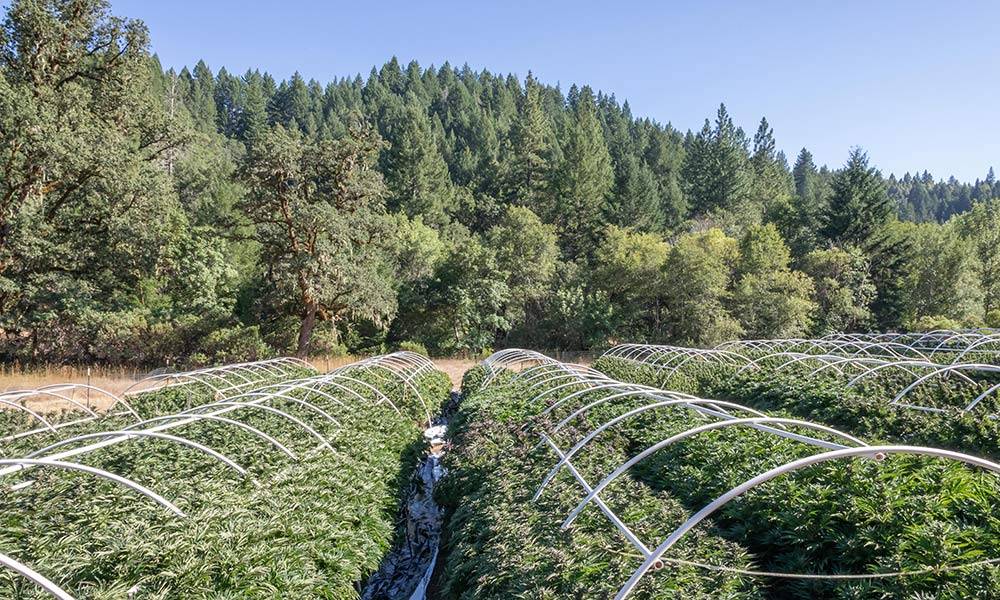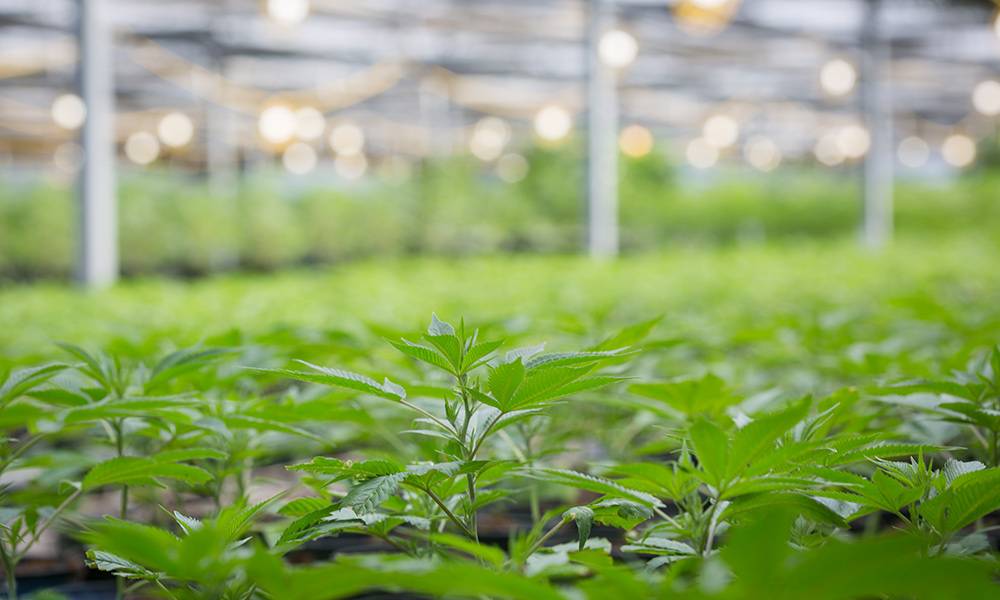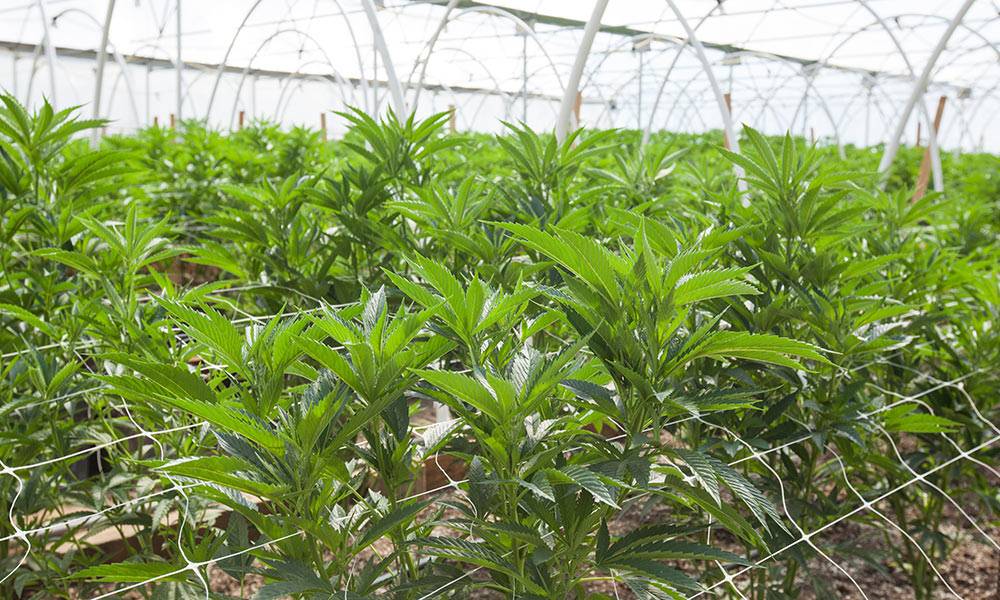By Dante Jordan
The indoor vs outdoor cannabis debate is as old as The Beatles vs. The Rolling Stones. And truthfully, there is no right answer; it’s all about individual consumers and what you like to smoke. However, the conversation becomes much more layered when we talk about growing. Sure, indoor offers many benefits by giving growers complete control over the plant’s environment, and it produces some incredible buds; but it also leaves the biggest environmental footprint.
Past that, you would need to add some nuance to the conversation due to there being multiple types of outdoor cannabis, versus the singular indoor. Considering full-term sungrown cannabis and light-deprivation cannabis both use the sun, casting the broad “indoor is way better than outdoor” judgment would be like saying Reese’s are way better than Skittles without first acknowledging that the purple-bag Skittles and the green-bag Sour Skittles offer worlds different experiences.
What Is Sungrown Cannabis?
Sungrown is exactly what it sounds like: outdoor-grown cannabis that uses the sun as its primary source of light. Sungrown cannabis has many benefits including allowing cannabis plants to grow in their most natural environment, being the most cost-efficient for growers, and having the least impact on Earth’s natural resources. Simply put, all plants express their fullest potential outside, and cannabis is no different. Within that sungrown cannabis family tree, you’ll find two thick branches: full-term sungrown and light deprivation sungrown.
What Is Full-Term Sungrown Cannabis?
When you see a huge open field of cannabis plants, you’re looking at full-term sungrown cannabis. It’s also called full-term sungrown, organic sungrown, or sometimes just sungrown.
Sungrown cannabis is the most natural and least expensive way to grow cannabis. All you need are cannabis seeds, soil, water, the sun, and months of patience. It’s the most natural because that’s all any plant needs, and without a need for tents or lights, it has the least amount of overhead, which is why many beginning cannabis growers start here. Growing cannabis outside may also produce higher yields of plants with their fullest cannabinoid and terpene profiles. Though au naturale, sungrown offers its disadvantages too.
Being fully exposed to the elements makes it more susceptible to pests and random temperature changes that could ruin your beloved crop. All it takes is one freakish cold front sweeping through to kill months of work. Sungrown cannabis flowers naturally when the days shorten to 12 hours of sunlight and 12 hours of darkness, which occurs every year at the Fall Equinox in September, with most outdoor cannabis being harvested in late October or throughout November. Rather than one big harvest, some growers find it more advantageous and efficient to harvest smaller amounts of light-dep cannabis throughout the season. Many companies that grow full-term sungrown send it straight to the processor to become hash oil.

What Is Light Dep Sungrown Cannabis?
The second type of sungrown cannabis is grown with light deprivation or light dep for all you cool cats and kittens. These are the buds that grow in greenhouses with supplemental lighting
Light deprivation is the act of tricking the cannabis plant to grow faster by manipulating its light cycles. What that means is allowing the plants to gather energy from the sun for 12 hours per day, then intentionally blocking out the sun with tarps to create 12 hours of darkness, tricking the plants into flowering faster than they would naturally. The 12-and-12 light cycle automatically causes the plant to think “Oh no, fall is coming! Better flower now before it's too late!”
The benefits of light dep cannabis are that they grow in tents or greenhouses, which gives them a controlled environment, in addition to feeding cannabis plants that natural sunlight, which encourages them to produce their full natural terpene profiles. Also, since they flower faster, you can harvest a few more times a year. This is why a greenhouse is sometimes thought to be the best of both worlds.

Sungrown vs. Light Dep vs. Indoor Cannabis
The biggest difference between sungrown and light dep cannabis is their growth environment. Sungrown drops the convertible top; light dep just opens the sunroof. Both are more cost-efficient, natural, and sustainable than indoor. All those light bulbs, fans, dehumidifiers, and electricity needed to grow cannabis indoors year-round leaves a huge carbon footprint behind. As the cannabis industry grows, sustainability is becoming more important to eco-conscious customers and a differentiator between brands.
In terms of quality, that’s really up to you and whatever you like smoking. Some consumers prefer sungrown cannabis because it’s the most natural, and environmentally-friendly version of the plant. Those natural plants really do have more robust cannabinoid and terpene profiles. Still, because so many elements can affect outdoor cannabis, many consumers also believe sungrown to be at the bottom of the potency/effects totem.
Light dep is touted as the best of both worlds, producing extremely terpy plants with the potent effects you’d expect from whichever cannabis genetics are being grown. It's a fact that the sun produces different spectrums that indoor lights can only imitate. Though that sunlight can help cannabis plants express their fullest genetic potential, that doesn’t necessarily make them better than indoor cannabis.
For so long, the illegality of cannabis pushed growers indoors where they had to find ways to replicate the sun’s many spectrums. Over time, they perfected those growing methods, and the result has been years and years of the colorful, trichome-coated, beautiful buds that dominate dispensary shelves. And with outdoor growers having to work around the sunny seasons, that’ll never change. In the end, knowing that sungrown, light dep, and indoor can all produce high-quality buds that’ll satisfy any connoisseur, the call is up to you.

